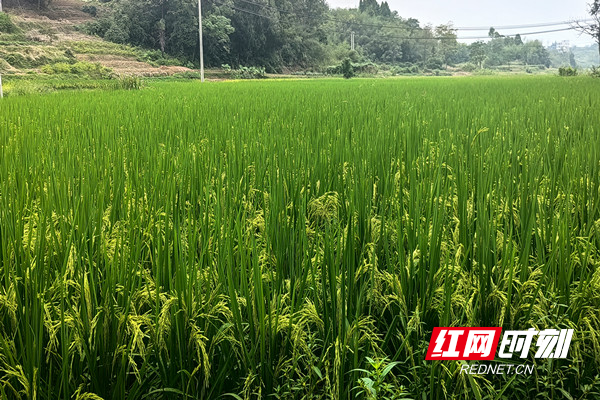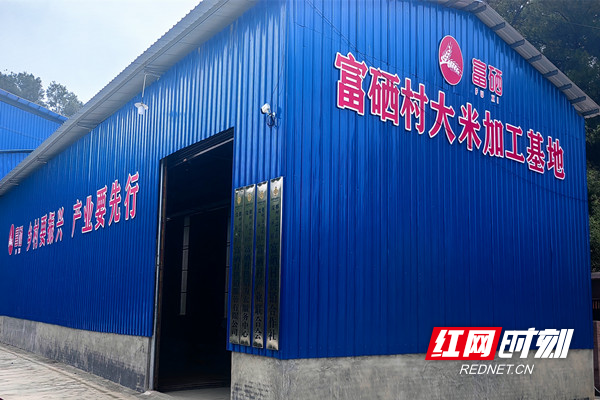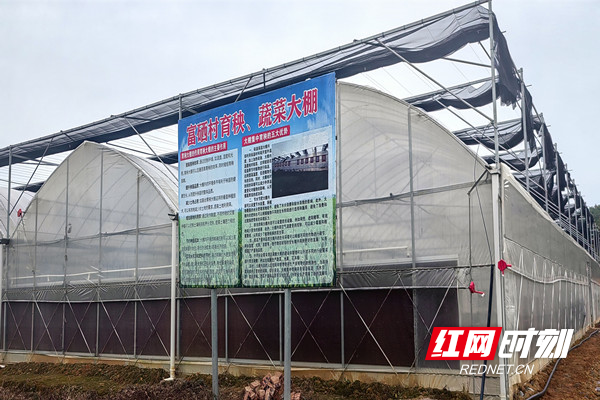Once poor village lifted by Se-rich industry
2024-10-02
Recently, villagers were busy clearing weeds in the rice fields of Fuxi Village, Zhuquan Town, Jiahe County.

Songjia, Fuyang, and Shuixi villages in Zhuquan Town merged into Fuxi Village in 2014, with a population of 3,480. “Fu Xi” in Chinese means “rich in selenium, and it is so named because of selenium content of the soil greater than 0.4mg/kg.
The village used to rely on conventional agriculture, with no industrial and mining enterprises. In 2014, the per capita income of the whole village was 2,250 yuan, and the village was identified as a provincial-level poverty-stricken village. In 2017, it was removed from the poverty list.
Ouyang Wenbai, Party secretary of the village, said that Jiahe County is an advanced county for implementing the selenium supplementation project in Hunan Province and a key county for implementing the selenium-rich project. Fuxi Village is a selenium-rich industrial base for Jiahe’s Sanwei peppers, Fuxi rice, and others. The village determined to develop the selenium-rich industry based on its precious resources.

Workers were busy with their duties in an orderly manner at the rice processing plant of the rice processing base in the village. “The annual profit from rice processing and sales is about 200,000 yuan, and a set of grain drying equipment has been installed to meet the needs of large farmers in the surrounding areas for drying grain. The sunken grain dryer can dry 500 tons of grain annually, which can increase the collective income by 20,000 yuan per year,” said Ouyang Wenbai.
Fuxi Village borrowed 2 million yuan from the bank and obtained 1 million yuan of support funds from the Municipal Organization Department in the name of the cooperative, solving the funding problem for the development of the Fuxi rice industry. At the same time, more than 600 mu (40 hectares) of barren land has been reused, and more than 1,500 mu (100 hectares) of paddy fields have been contracted to large farmers in the village through land transfer for the cultivation of Fuxi rice.
Newly planted chili pepper and bitter melon seedlings are growing well in the seedling and vegetable greenhouse base of the village. This greenhouse is a newly built project in the village, with a total area of 7,000 square meters. There are two seedling raising assembly lines, which can increase the collective income by 270,000 yuan per year.

The vegetable cooperative led by the village collective economic organization cooperative started planting off-season bitter melons from August, which can increase the collective income by 120,000 yuan per year. At the same time, the village has purchased rotary tillers, rice transplanters, and harvesters, providing agricultural services in surrounding towns and villages, which can bring an income of 200,000 yuan for the village annually.
“Now I can make a living by working in the village. I can earn nearly 30,000 yuan per year by planting tobacco, working at the rice processing plant, and cleaning,” said a villager.
The development of these industries boosts the income of the village collective and provides broad employment prospects for villagers. Currently, there are over 110 villagers from poor households working in rice processing, tobacco curing, vegetable cultivation, and other fields.
“The annual income is expected to reach one million yuan from all these projects this year,” said Ouyang Wenbai. the money earned by the village in the past two years was used to purchase equipment, expand the planting scale, and improve the village’s infrastructure. The next step, they’ll consider giving out dividends to the villagers.
Chinese source: rednet




